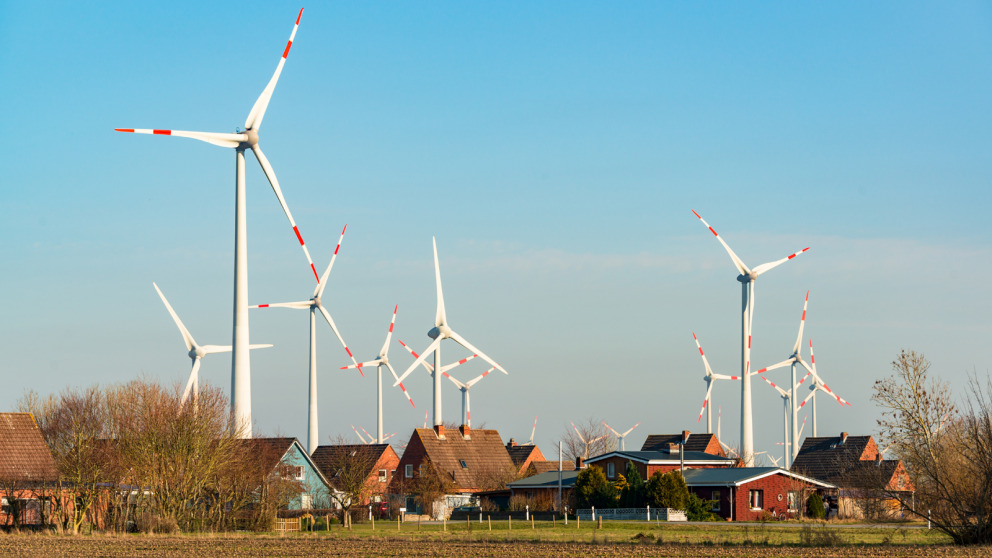Accelerating the Expansion of Wind Power
20.09.2021
Ensuring the successful expansion of wind power will require the broad involvement of citizens. A new IASS Policy Brief offers recommendations for policymakers on how they can rally citizens behind the goals of the energy transition, support public participation at the municipal level, and improve the equity of participation opportunities.

Wind power infrastructure will need to be expanded rapidly if Germany is to meet the increasing demand for electricity and achieve its climate protection targets. The planned expansion and new construction of onshore wind power plants is broadly supported by the German public. However, people tend to be less enthusiastic when it comes to the construction of wind power plants near their homes and residential areas.
The energy transition is a collective challenge and can only succeed with the broad support and involvement of citizens. The construction of wind power turbines and other infrastructure exposes people to the material reality of the energy transition, making it all the more important that they are able to have a say in shaping their environment and have the opportunity to benefit financially and as a community from this transformation. Expanding opportunities for participation and involvement enables people to take ownership of the energy transition. In doing so, policymakers need to understand the different motivations at play when citizens reject proposals and address the lack of opportunities for participation in a way that is appropriate to the target group.
The IASS Policy Brief “Windausbau vor Ort – Potentiale erkennen, Beteiligung und Teilhabe stärken” (“Expanding Wind Power on the Ground – Identifying Potentials, Strengthening Participation and Involvement”) offers recommendations on how to rally citizens behind the goals of the energy transition, support public participation at the municipal level, and enhance the equity of participation opportunities.
Recommendation 1: Put the energy transition on the agenda in municipalities
Conflicts arise around wind power projects when they are perceived by local citizens as external interventions. The mandatory performance of an analysis of municipal resources available for the expansion of renewable energy infrastructure could facilitate political debate on local energy transitions and enable local authorities and citizens to determine together how they will contribute to this transformation process.
Recommendation 2: Recruit neutral experts to facilitate participation processes
The early informal participation of the regional population in planning processes is a central factor in ensuring the successful expansion of wind power. To ensure that participation procedures are effective and address the interests and needs of the various groups of actors on the ground, they should be facilitated by neutral external experts in public participation.
Recommendation 3: Share the financial benefits of wind power more equitably
Despite high levels of willingness to support the energy transition, not all population groups have had the opportunity to participate financially in wind power projects. In order to improve the social equity of financial participation opportunities and anchor the energy transition more firmly in municipalities and regions, investments should be promoted in a targeted manner through the use of various financial incentives.
Wolf, I., Teune, S., Fischer, A.-K., Huttarsch, J.-H. (2021): Windausbau vor Ort – Potentiale erkennen, Beteiligung und Teilhabe stärken. IASS Policy Brief, September 2021, Potsdam, DOI: 10.48481/iass.2021.026

